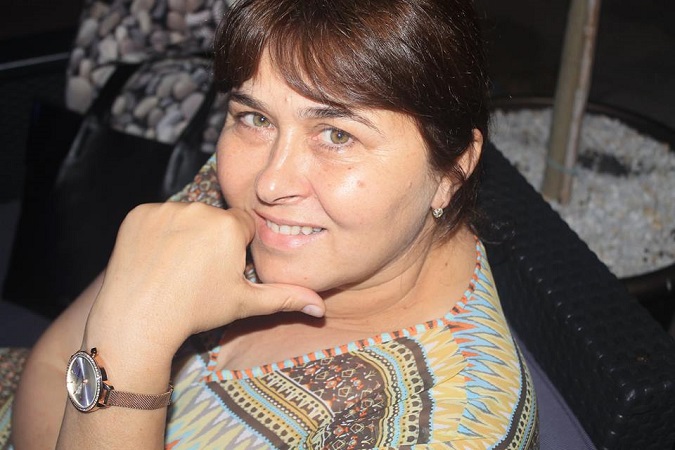In the words of Iza Bekauri: “It is very important to work on women’s issues in Pankisi”
Date:

Iza Bekauri, Head of the Kakheti Regional Development Foundation (KRDF) lives in the Pankisi Gorge, Akhmeta District. She has been engaged in activism for years. Populated mostly by ethnic Kists, the Pankisi Gorge is located in the eastern part of the country, in Kakheti Region. The gorge is highly influenced by its customary law, religious leaders and traditions. Despite much resistance, Iza Bekauri is implementing important projects in a very difficult environment, including those for addressing women’s rights. She is a partner of UN Women and initiator of many changes within the framework of the Joint UN Programme for Gender Equality (financed by the Swedish Government). The fourth President of Georgia Giorgi Margvelashvili awarded Iza Bekauri the Order of Honor at the end of 2018.
I was working at the Tax Inspectorate in 1999-2000 when the Chechen refugees came to the Pankisi Gorge for the first time. I remember how astounded I was by the condition of these people. Soon the local NGO Samani, operating in Pankisi with the financial support of UNHCR, started to build kindergartens for Chechen refugees and I volunteered to take part in this process. Shortly afterwards I joined Samani as a financial manager.
I have been interested in women’s issues since 2007. I was working at the Norwegian Refugee Council when we formed women’s clubs in three villages in the Pankisi Gorge – Tsinaubani, Duisi and Dumasturi. We arranged special spaces in houses where Chechen and Kist women would gather once a week: we read newspapers, talked about various issues and shared our concerns with each other.
This experience helped me a lot later on when I became head of the KRDF. The Pankisi Gorge is distinctive: problems are addressed here in accordance with their traditions and customary law. During the meetings at their clubs the women often told stories about many issues that were resolved wrongly without considering their interests and with the participation only of men. I wanted to do something that would benefit these women so I started working on establishing the Women’s Council in 2011. I faced much resistance in the beginning but eventually the Council was formed.
The main activities of the Women’s Council were to advocate for women’s rights and their issues to the men who make up the Council of Elders. The Council is a kind of a mediator between the women and the Council of Elders. It tries to ensure that issues concerning women’s rights are raised correctly and that appropriate decisions are made by the Elders. The creation of this Council was one of the biggest achievements for me, especially after it contributed to making significant changes to the customary law: the issue of alimony was regulated, and women gained the right to temporary custody of their children after divorce as well as the right to property. In addition, due to the efforts of the Women’s Council, early marriages are no longer blessed by religious leaders in the Pankisi Gorge.
The women of Pankisi are very smart, active and motivated. They are quick learners and like to engage in new things. After we started to promote women’s issues in the Gorge their awareness was raised, they were empowered and now they can freely participate in local government elections. Many of them became economically active as well: with our support they learned how to write project proposals and they received grants. I want to bring the Georgian and Kist women in the Pankisi Gorge closer together, to teach each other as well as to share experiences.
In general, it is very important to continue working on women’s issues in such a tough region. I know that I am needed in Pankisi and that I should be here.”